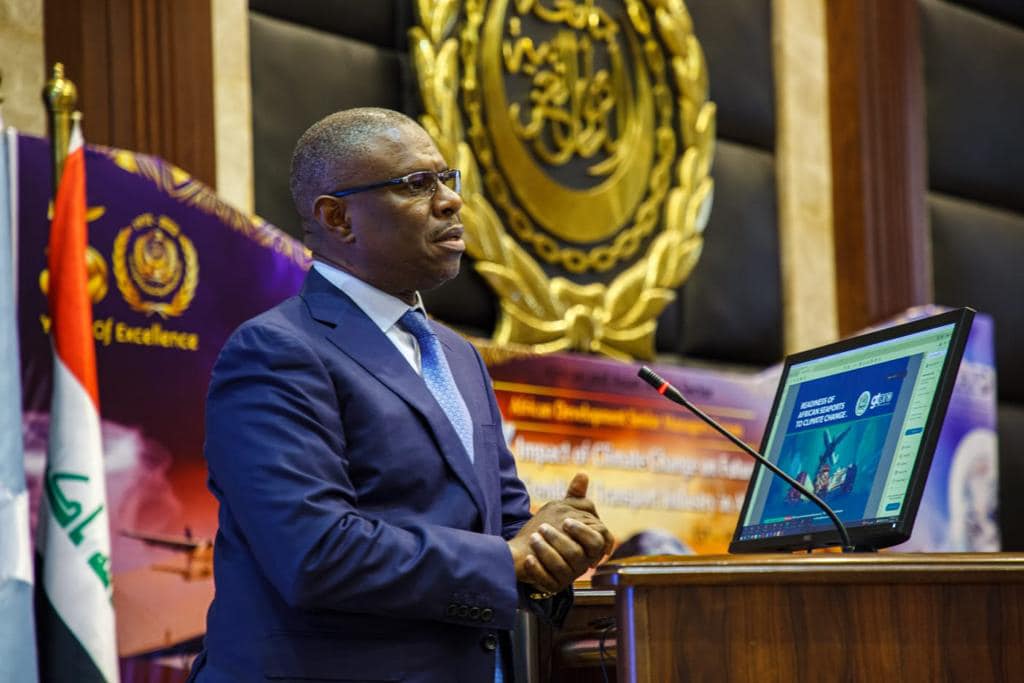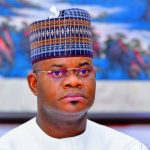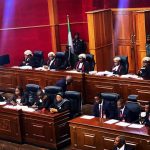There have been reports of the circulation of small and light weapons in different regions of Nigeria, particularly in areas affected by conflicts, such as the Niger Delta, the North-East region plagued by Boko Haram insurgency, and other volatile areas, but no serious attempt, by Nigerian authorities, has been made to get data about the estimated number of SALW in circulation. These weapons often find their way into the hands of criminal groups, insurgents, and other non-state actors, fuelling instability and posing a threat to both national and regional security.
From the small handguns of the 15th century to the sophisticated machine guns and other small and light weapons of our time, the world has suffered mayhem and wanton destruction due to the rightful and wrongful use of these weapons. In the hands of non-state actors, these weapons are used to challenge the state monopoly of coercion and in committing all levels of criminality, from kidnaping, armed robbery, banditry, and criminal revolt against the state.
The more dangerous dimension in Nigeria is the illegal possession of military-grade arsenal by criminals and non-state actors. This unlimited and unchecked proliferation of illegal arms has reached an epidemic level in Nigeria in recent times with attendant national security implications. Neither the Executive nor the legislature or the security agencies seem to have mustered the will to tackle it. Only a few cosmetic exercises have been done. I acknowledge the little gains made by these efforts, but they have not been enough to reduce, if not eradicate, the menace of the proliferation of small and light weapons in Nigeria.
The issue of illicit Small And Light Weapons (SALW) is a serious concern globally, and Nigeria has not been immune to its effects. Illegal small and light weapons refer to weapons that are not controlled by a state or a non-state entity and are often used in criminal activities or conflicts. The proliferation of such weapons in Nigeria has had devastating consequences, contributing to the perpetuation of violence, crime, and insecurity in various parts of the country. There have been reports of the circulation of small and light weapons in different regions of Nigeria, particularly in areas affected by conflicts, such as the Niger Delta, the North-East region plagued by Boko Haram insurgency, and other volatile areas, but no serious attempt, by Nigerian authorities, has been made to get data about the estimated number of SALW in circulation. These weapons often find their way into the hands of criminal groups, insurgents, and other non-state actors, fuelling instability and posing a threat to both national and regional security. With access to many illegal weapons, the rogue elements have become emboldened and more aggressive, hence less amenable to entreaties to make peace and are objects of terror to all. The situation where these rogue elements have better and more sophisticated weapons than the security agents leaves much to be desired. We expose our security men to harm’s way in their seemingly onerous task of protecting us.
The statistics on small and light weapons aberration in Nigeria is alarming. According to Small Arms Survey, a Swiss-based non-profit, in 2020, Nigeria had an estimated 6.2m of arms in the hands of civilians, excluding those of the military and law enforcement agencies. This means that 3.21 per 100 persons in Nigeria have firearms, whereas 224,200 and 362,400 guns were in the possession of the military and other law enforcement agencies, respectively. This is by far the highest number of civilian small arms and light weapons in any African country. The same organisation posits that Nigeria has more Improvised Explosive Devices (IEDs) than any country in sub–Saharan Africa.
The economy of SALW is growing and robust in Nigeria due to the multifactorial and complex situations fuelling the proliferation of illicit SALW. These factors include illegal smuggling of weapons through our porous borders, the conflict in the Sahel region in recent times, stolen firearms and gunrunning by rogue security personnel, a thriving local arms industry in places like Awka, Calabar, Lagos and other known local weapon manufacturing locations in Nigeria, illegal mining activities and oil bunkering, drugs and narcotics linkages, political violence especially during elections, armed vigilantes and extremists, and private security outfits. The demand and supply of these weapons are growing, creating a vicious circle of use of these weapons to perpetuate criminality. The superiority of the man with the gun over others who do not, and his ability to bend others to his whims and caprices, makes ownership of illicit arms attractive to many, even if not for use in criminal acts, but for self-defense. This is the bane of Nigeria. Citizen’s self-help in security issues is an aberration and does not help the SALW conundrum Nigeria has found itself.
Nigeria has attempted to combat this issue, including participating in international initiatives and implementing various policies and programs to control the spread of illicit weapons. I must acknowledge the work done by the Amnesty office, which has conducted small arms and light weapons amnesty at various times. They collected many SALW in exchange for giving the people who submitted them cash incentives. Furthermore, the Nigerian government has set up legislative, institutional, and policy frameworks to tackle this menace. The National Commission for the Coordination and Control of Proliferation of Small Arms and Light Weapons is one such instrument to deal with these issues. However, not much has been heard of the activities of this agency. Notwithstanding, continued commitment and collaboration at the national and international levels are crucial for effectively addressing the epidemic of illicit small and light weapons in Nigeria and creating a more stable and secure environment for its citizens.
Addressing the challenge of illicit SALW in Nigeria requires a combination of strategies and a multifaceted approach that involves cooperation between the government, security agencies, and international partners. Strategies might include a nationwide arms decommissioning exercise, strengthening border controls to prevent the influx of weapons, improving intelligence-gathering mechanisms to track illicit arms trafficking, and implementing disarmament, and reintegration program to retrieve weapons from non-state actors and reintegrate them into society.
Furthermore, promoting community-based initiatives, fostering dialogue, and investing in socio-economic development can help address the root causes of conflicts, thereby reducing the demand for these weapons. Strengthening law enforcement and promoting judicial reforms are also essential in ensuring that those involved in the illicit arms trade face legal consequences.
It is time to strengthen appropriate institutions to enforce laws and regulations on the control of SALW. We must upend the penalty and punishment for bearing illegal arms and ensure people know the severe consequences of being caught with illicit arms. We must invest in Intelligence to track the movement and location of these illegal arms and take the war to those who engage in this unlawful and dangerous business. We must remember that we can either cut off the supply for SALW and watch the demand fizzle away or vice versa. Any actions or inactions that will hurt the SALW economy will be in the right direction. Political merchants and their thugs should never forget that Small Arms and Light Weapons (SALW) live longer after elections.
Government at all levels must collaborate with civil societies and other interested local and international agencies to systematically reduce the risk of proliferation and transfer of SALW by confiscating and destroying these weapons. They must raise awareness, especially among children and youths, about the dangers of illicit SALW through a robust and well-organised campaign, education, outreach, and representation. They must implement evidence-based policies and practices to control the spread of SALW. Private citizens must resist the desire to resort to self-help in the issue of insecurity, thereby worsening the scourge of weapon proliferation. The government must take back control of the security of the nation, which is its primary role, and give citizens confidence that the government can and will protect their lives and property.
The proliferation of SALWs, occasioned by multiple factors of porous national borders, allows for the smuggling of these weapons from other countries connected with previous and present conflicts in Sub-Saharan Africa and North Africa, a booming business of gunrunning by security personnel, a thriving local arms industry and nonexistence of a robust and fit-for-purpose regulatory and enforcement mechanism are the main factors fuelling Nigeria’s security challenges, giving rise to criminal activities across the country. This grim revelation does not bode well for Nigeria, especially at this critical time when the nation is experiencing severe economic and security challenges across almost all the regions. It is time we stepped up our game to confront illicit SALW and start resolving our insecurity problems. The government must take back control of its supremacy in the use of instruments of coercion in Nigeria and make most non-state actors disengage in trying to control some or all parts of the Nigerian state.























Leave a comment